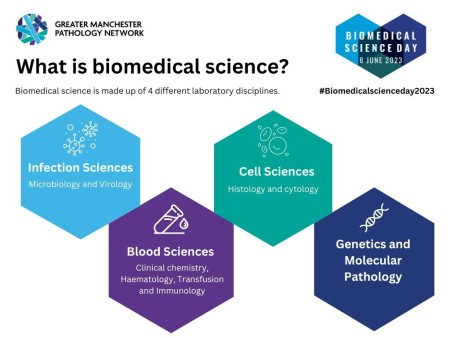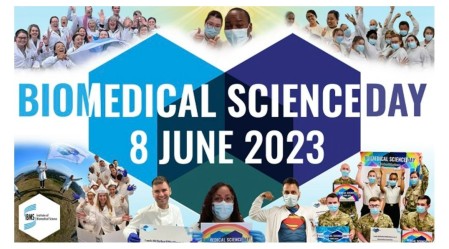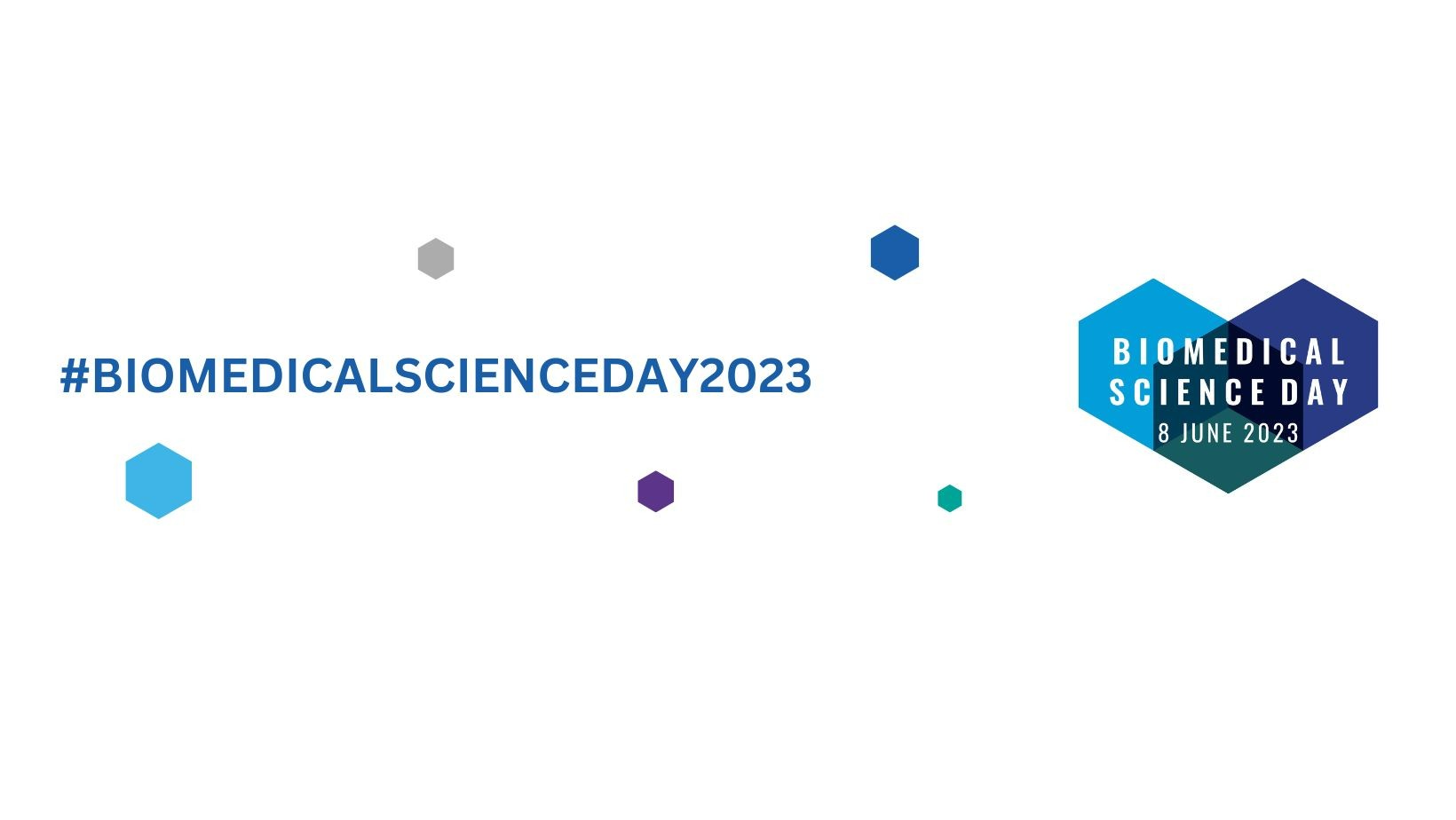
Biomedical Science Day takes place on 8th June 2023 and celebrates the vital role biomedical scientists play in patient care through the diagnosis of infections and diseases. The day is organised by the Institute of Biomedical Science (IBMS), the professional body for Biomedical Scientists and laboratory support staff. The awareness day aims to inform the public and empower patients by telling them about practices in biomedical science, strengthen interdisciplinary team work and communication in hospitals and celebrate a profession that is at the heart of healthcare.
What is biomedical science?
Biomedical science is a biology and chemistry related discipline used mostly in healthcare laboratories to identify, research, monitor and treat diseases. As one of the broadest areas of modern science, it focuses on the complexity of the human body and underpins much of modern medicine.
Biomedical Scientists, Clinical Scientists and laboratory staff mostly work in healthcare laboratories. They diagnose diseases and evaluate the effectiveness of treatment by analysing fluids and tissue samples from patients. In the UK alone, healthcare laboratories are involved in over 70% of diagnoses in the NHS, handling hundreds of millions of samples every year.
To protect public safety, anyone using the title 'Biomedical Scientist' must be Health & Care Professions Council (HCPC) registered and continue to meet HCPC standards.
Disciplines of biomedical science
After registering, biomedical scientists continue their professional development with specialist training, usually in a single discipline:
- Blood Sciences
- Cell Sciences
- Genetics & Molecular Pathology
- Infection Sciences
Blood Sciences
In blood science, biomedical scientists collect blood samples to diagnose disease or ensure that a donor's blood is matched with the patient receiving it.
Clinical chemistry is the analysis of blood and other biological fluids to help the diagnosis of diseases, such as diabetes. Clinical chemists also carry out toxicological studies, test kidney and liver functions and help to monitor therapies.
Haematology is the study of blood. In this discipline, haematologists investigate the formation, composition, function and diseases of blood. Some of the diseases diagnosed in haematology are leukaemia, malaria and anaemia.
Immunology deals with the conditions of the body’s immune system and its role in infectious diseases, parasitic infestations, allergies, tumour growth, tissue grafts and organ transplants. It is particularly important in the monitoring and treatment of AIDS.
Transfusion science identifies blood groups for blood donation, ensures the correct grouped blood is matched to the patient due to receive the donation and makes sure blood stocks are adequate for critical incidents such as road traffic accidents, operations and cancer treatments.
Cell Sciences
Cells form the basic building blocks for all living things: humans, animals and plants are made up of tiny cells. It is estimated that the human body is made up of 37.2 trillion cells (or 37,200,000,000,000!).
Histopathology/Cellular Pathology studies tissue samples microscopically to establish the cause of illness. Tissue may be taken during surgery or at a post mortem. Diseases such as cancer are diagnosed by looking for abnormal features in tissue architecture.
Cytology is best known for its work in screening cervical smears, but it also provides a non-gynaecological service investigating cellular components in samples, such as sputum. Like cellular pathology, specialised techniques are used to prepare and study samples of cellular materials.
Genetics & Molecular Pathology
Genetics and Molecular Pathology are relatively new disciplines in biomedical science. Biomedical scientists in these spheres study genes, looking at heredity and variations in genes.
Genetics study genes, genetic variations and heredity. They look at the inheritance of genetically determined characteristics, such as DNA sequences (genotypes) or traits that are passed from parents to their offspring.
Molecular Pathology studies and diagnoses diseases by examining tissues and fluids at molecular level, such as DNA, RNA and protein. DNA (also known as genes) act as templates in the production of RNA, which acts as a template for the production of protein. As well as studying and diagnosing diseases, molecular pathologists advise on the treatment and prevention of them.
Infection Sciences
Infection sciences focus on the study of bacteria, fungi, parasites and viruses that attack the body, causing infections and diseases.
Medical microbiology is the study of micro-organisms such as bacteria, fungi and parasites which cause disease. It identifies organisms and establishes the antibiotic treatment required to kill them. Diseases diagnosed include: meningitis, tuberculosis and food poisoning.
Virology is the study of viruses and the disease caused by them such as German measles, HIV and chickenpox. It is also involved in monitoring the effects of vaccines.
Becoming a biomedical scientist
Modern pathology and biomedical laboratory work involves complex and diverse investigations requiring an in-depth scientific knowledge of anatomy, physiology and pathology.
If you plan to work as a biomedical scientist you should choose an IBMS accredited degree. If your degree is not accredited by the IBMS, your degree can be assessed and any educational shortfall can be identified, however you may need to take additional modules from an IBMS accredited degree.
To study biomedical science at university you will need A levels in biology and/or chemistry, or equivalent, as well as GCSE mathematics, or equivalent. Universities have different requirements for their biomedical science degree courses which can usually be found on their websites.
For a full list of universities offering IBMS accredited biomedical science degrees visit: www.
https://
